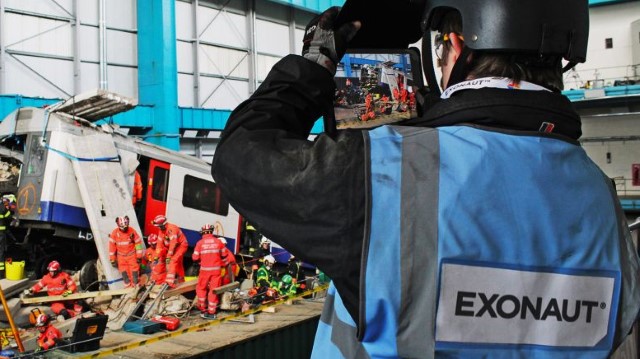- How will this affect our future? Jump straight to the political implications
- Want to know what you can do? Get Olle’s top consumer tips for the energy crisis
2022-09-08
Author: Olle Crondahl
Bio: 4C Consultant Olle specializes in energy preparedness and Business Continuity in the utilities industry. His expertise lies in helping energy companies increase their organizational resilience.At 4C, we look at a crisis from many angles to support governments and organizations with their resilience needs.
As the war in Ukraine moves into its seventh month, we have seen how it has led to an energy crisis across Europe. And with no end in sight, high energy prices could be a key contributor to a recession. 4C energy expert Olle Crondahl explains more.
Understanding the Energy Crisis – What Europe can Expect
Energy is power
We continue to witness the power an energy-rich nation has over a region that depends on it for energy. Despite the invasion and the condemnation of it by the world’s governments, gas has continued to flow to Europe from Russia until now, albeit at a considerably reduced rate. And who knows when or if the supply from Nordstream 1 will restart. Gazprom claim that the shutdown is due to an engine oil leak and missing service parts, but most experts agree it is a retaliatory move for sanctions placed on Russia.
Regardless of the reason, it has left those countries dependent on Russian gas, desperately working to fill their gas reserves before winter. It’s now a sellers’ market in central Europe as gas is imported from the US, Africa, and the Middle East, along with gas-rich European countries such as Norway. Whether it’s enough to fill the reserves is yet to be seen.
The power and political dilemma
We are at a point now where we’re reaching the perfect storm. As well as shortages in gas supplies, nuclear capacity has been reduced due to the need to maintain and replace aging equipment at stations. At the same time, a military stand-off is currently taking place at Europe’s largest nuclear plant in Ukraine –the potential implications go way beyond an energy crisis.
In Germany, where the most significant impact of gas restrictions is being felt, a political shift is now taking place. The country is currently discussing recommissioning nuclear power plants to cope with gas restrictions. However, finding the experts and qualified staff to open and run these is no small feat. Additionally, a recent decision was taken to reactivate coal-driven power stations, an act that will reduce the reliance on gas but counter climate goals.
Standardizing BCM for a global energy company
Learn how we help Uniper refresh its BCM approach to get a clearer understanding of their Business Continuity capabilities and build a more robust, resilient organisation.
The rising cost of energy
The fiscal cost of reduced gas supplies is being felt everywhere, even in those European countries that aren’t reliant on Russian gas. Much of Europe has seen the cost of electricity doubled in the past few months alone. Winter could see yet further increases in energy costs, and where will that leave those already struggling to cover these costs? Businesses are already being forced to close, and homeowners are cutting spending to cover bills. Less spending, compounded by fears of further energy price increases, could drive a recession.
Societal impact
Many governments are looking to subsidize the cost of energy, even though they are yet to recoup the costs from the pandemic response. How much support businesses and citizens will receive is yet unclear and will depend on where they are located. For instance, the energy price cap has almost doubled in the UK this year. What was already the limit of what many households and small businesses could manage has now been surpassed. And if businesses are faced with paying bills or paying salaries, it could well be that we see more and more people losing their jobs.
We may even see rationing of energy, which would have an impact on us all. In such a case, keeping hospitals, ports, defence sites, etc., must be prioritized over other non-essential operations. However, this implies a resilience process is in place to handle it; cutting energy at certain times of the day in certain areas is far easier, but it doesn’t necessarily cater for critical functions. In Sweden, 4C have been instrumental in developing a process for mapping and evaluating critical functions in just such an emergency. Done together with multiple governmental departments and municipalities, and in conjunction with energy providers, Styrel lists and categorizes critical functions throughout the country.
Assessing regions’ fuel infrastructure
Learn more about how we assessed the liquid fuel depot infrastructure and supply for an entire region.
Energy and the election
Talking of Sweden, where I’m based, we face a geographical split in energy pricing that is becoming a key campaign point in the upcoming national election. Despite the majority of electricity coming from hydro and nuclear, along with a growing contribution from wind, there has still been a massive increase in the cost of electricity – particularly for those living in the south, far from the hydroelectric dams that generate electricity. In fact, it can cost as much as ten times more for energy in the south than in the north, which has seen some small manufacturers relocate operations to the north. This may lead to a demographic change in the country as people look to relocate to areas with lower living costs.
What can you do as a consumer?
Everyone in Europe facing an energy bill has the same costs-dilemma, which is why electricity prices have become such a hot topic. Food prices have also risen, as has the cost of petrol. Our money won’t go as far, so small savings can make a difference, particularly when winter comes. So here are a few tips to keep your electricity bills at a minimum this winter.
- Turn the thermostat down by one degree centigrade. If that feels OK, do it again until you find your limit.
- Don’t run hot water unnecessarily. Use a bowl to wash dishes, cooking utensils, etc., rather than keeping the water running.
- Fill up washing machines or dishwashers. In other words, don’t run them half full.
- Use energy when it’s cheapest. Can you heat the house at night for the rest of the day or program machines to run at night?
- Turn off or down lights and replace them with LEDs where possible. Lights can account for as much as 10 percent of energy costs in the winter months.






